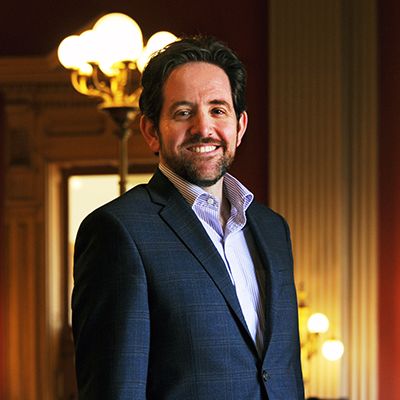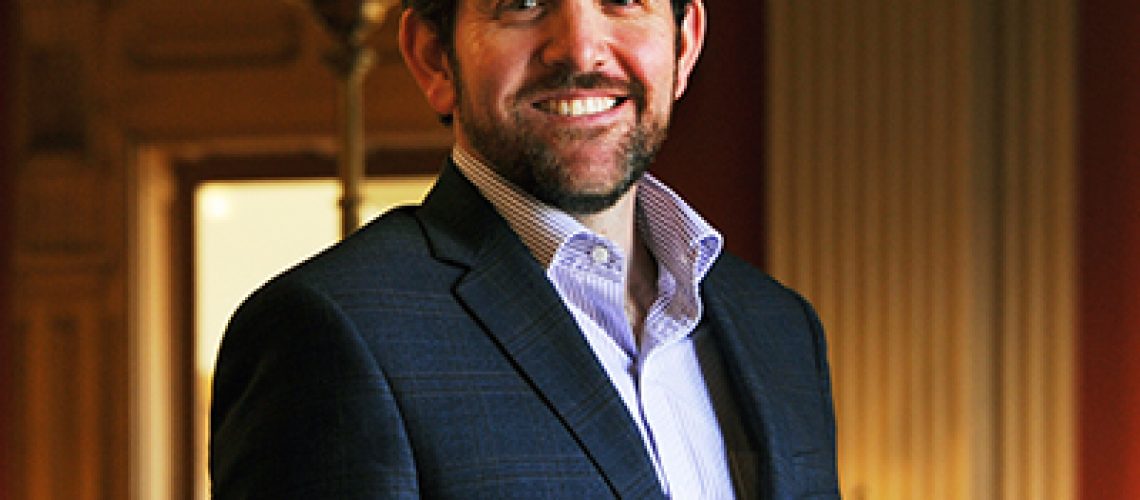Looking Back on 2017: 5 Questions with Gabriel Guillaume, President & CEO of LiveWell Colorado
 Toward the end of 2016, Gabriel Guillaume, who has been with LiveWell Colorado since 2010, took the helm as the organization’s President and CEO. We recently sat down with him to reflect on the past year at LiveWell and learn more about his inspirations and aspirations for this work.
Toward the end of 2016, Gabriel Guillaume, who has been with LiveWell Colorado since 2010, took the helm as the organization’s President and CEO. We recently sat down with him to reflect on the past year at LiveWell and learn more about his inspirations and aspirations for this work.
In your opinion, what have been LiveWell’s biggest accomplishments of 2017?
First, it was a big shift to make a change in mission statement. It’s a real commitment to focusing on where racism and socioeconomic conditions are preventing people from living healthy lives. Committing to narrowing our focus where inequities lie is a big accomplishment. Programs like Double Up Food Bucks almost tripling its reach, and the partners we’ve developed with that, is a big success. And our recent HEAL Summit garnered the highest attendance of its history and offered a diversity of perspectives and topical conversations that really pushed participants to consider how we address disparities and the effects of racism. The internal work of beginning to diversify our team to effectively reach our intended constituencies is a success as well. We have meaningfully supported efforts to advance Westwood Unidos’ campaign to obtain funding for a recreation center, we are convening a statewide network of food policy coalitions toward a set of very common goals, and we are advancing the social justice and community organizing efforts taking place around food and racial equity in SW Colorado. What we have done through our School Food Initiative to advance the health of the lunch program in the Thompson School District, as an example, makes me proud to be a part of this organization. There isn’t a shortage of successes, yet there is a lot more we still need to do and evolve through.
What is a challenge the organization has faced over the past year, and what are lessons have been learned?
Evolving who we are as a staff and who, in community, we are focused on represents a lot of transition. It’s a challenge for an organization to be effective both internally and externally, and not accomplished easily—but we are committed to it. I’ve learned a number of lessons on this journey—commitment and values are only a part of the equation in becoming an equity-focused organization. Knowing how to accomplish the goal is a very different thing. There are not a lot of road maps. As CEO, just being committed doesn’t make me more effective, I have to listen, learn, and be humble. I have to keep people accountable. As a white CEO I have found myself out of my comfort zone at times. Saying things publicly with confidence about issues that make many others uncomfortable takes practice. I have had to take risks, but those risks pale in comparison to those that communities of color take each and every day. How to get a board to embrace the walk fully can also be a challenge. I am grateful for how well our Board has embraced our new direction, yet again, knowing how they can really advance that direction takes education and ongoing diversification. LiveWell’s thinking around racial inclusivity has broadened substantially, but I am frustrated that I can’t just get us there sooner. I’m impatient with this but I realize there are no quick fixes to entrenched systems of inequality.
In terms of LiveWell’s sustainability, we’ve put an enormous amount of effort this year into diversifying our funding and that continues to be a challenge. I believe that our strongest fundraising strategy is to have relevant impact in the communities we partner with.
As CEO, what are your broad goals for LiveWell in 2018?
My goals are to continue in our progression of building staff, board, and programmatic awareness in order to authentically remove barriers to healthy eating and active living in low-income communities. I know that in 2018 we’ll have the same environmental and political conditions we have now (or worse), so our job will not become easier, we have to become better at doing it. I see us needing to play a role in advancing other social determinants such as affordable housing, education, and economic equity to achieve our mission. We won’t lead those efforts but will partner with those that do by effectively aligning our assets to their priorities and constituencies.
We will effectively measure the impact of our work in a way that demonstrates our value, the hard work of our partners, and what others can do to replicate this kind of work here in Colorado and around the country. LiveWell has a lot to share about its work and it’s time for us to elevate our evaluation efforts to improve how and what we tell.
How have communities interfaced with LiveWell within the health-equity paradigm? Have you engaged with new communities?
Our programming is helping us engage in new communities, geographically and demographically. Although improved, our work still has an opportunity to more directly engage and support communities of color in Colorado. Recent efforts to more effectively highlight or contribute to the leadership of people who are focused on the impact racism is having on access to healthy behaviors is part of the picture. Our evolving Community Food Advocates program is also a part of this picture. We need to continue to listen and learn from communities, cultivate leadership when possible, and build trust through action in opposition to racism before we can say the interface between communities and LiveWell is where it should be. We need to be able to answer with confidence that we have we reached our audiences with something relevant to them. In that, credibility is key. Along the way some folks have distanced themselves from us and others have tuned in to LiveWell. Our goal is to keep working toward credibility and effectiveness with the communities that are our focus.
Last year, you described three key elements of your leadership style: clarity, action, and values (compassion, transparency, and equity). Has that changed? If so how?
I would say that my style is a balance between direction-setting and humility. With an organization in transition, you have to be extremely good at listening and course correcting. Leadership is not just stating a course—you have to admit you don’t know everything. I have always had a humble aspect to my leadership, and I’ve had to become extremely comfortable and confident in accepting criticism and being action-oriented about it. I’ve spent a lot of time working with staff this year. In 2018, if I can spend more time in the community, I can provide guidance and direction based on more perspectives.

